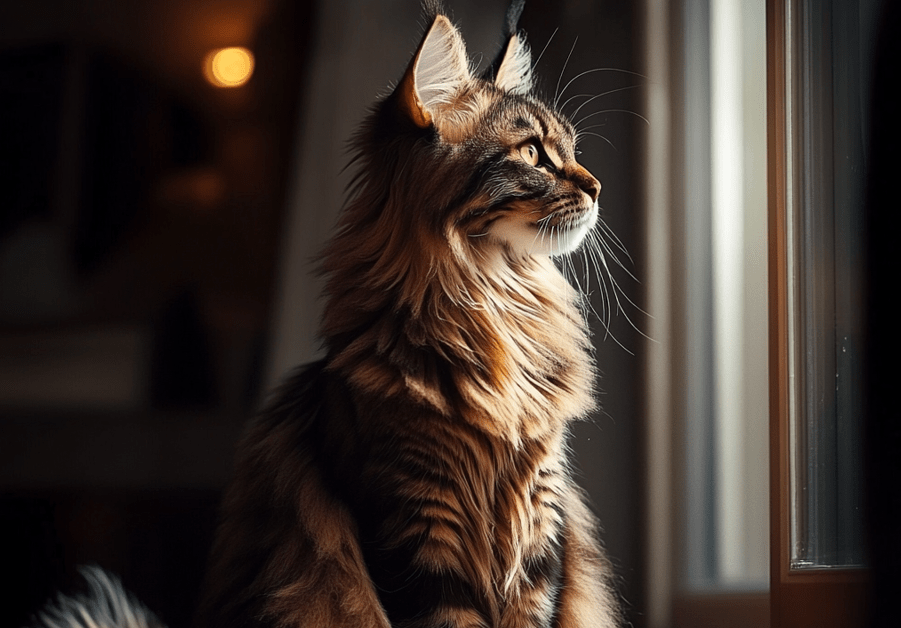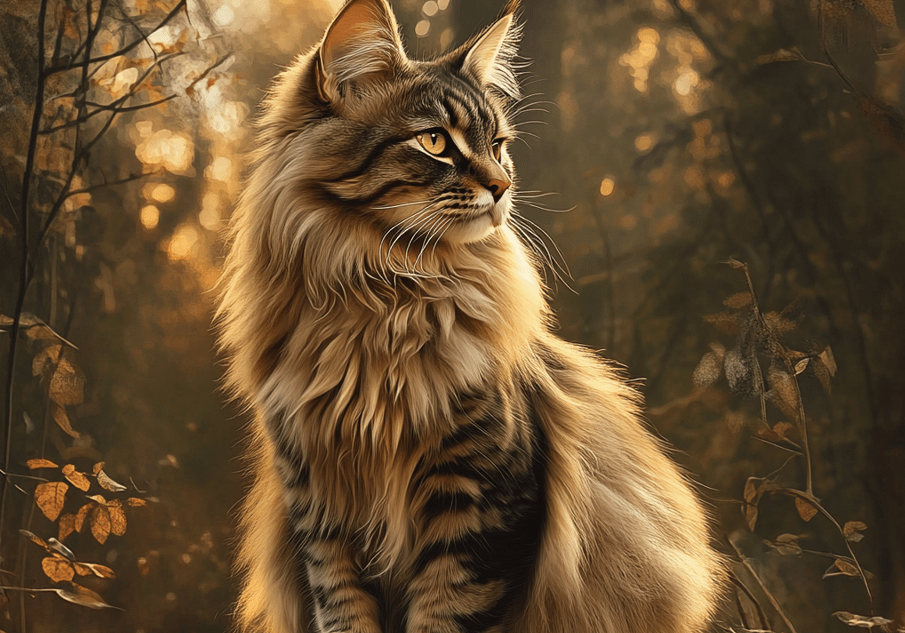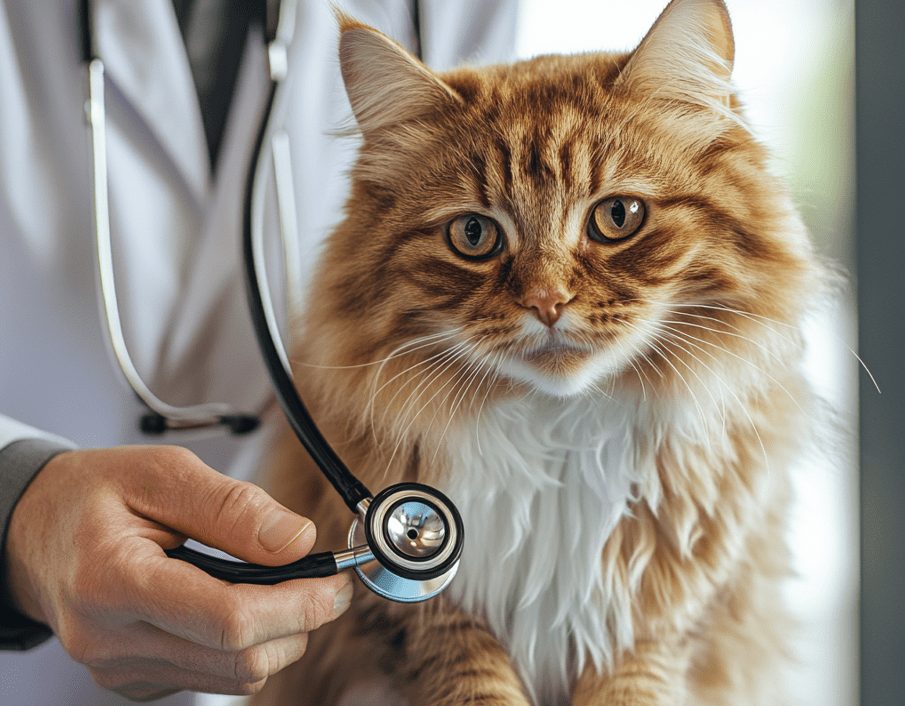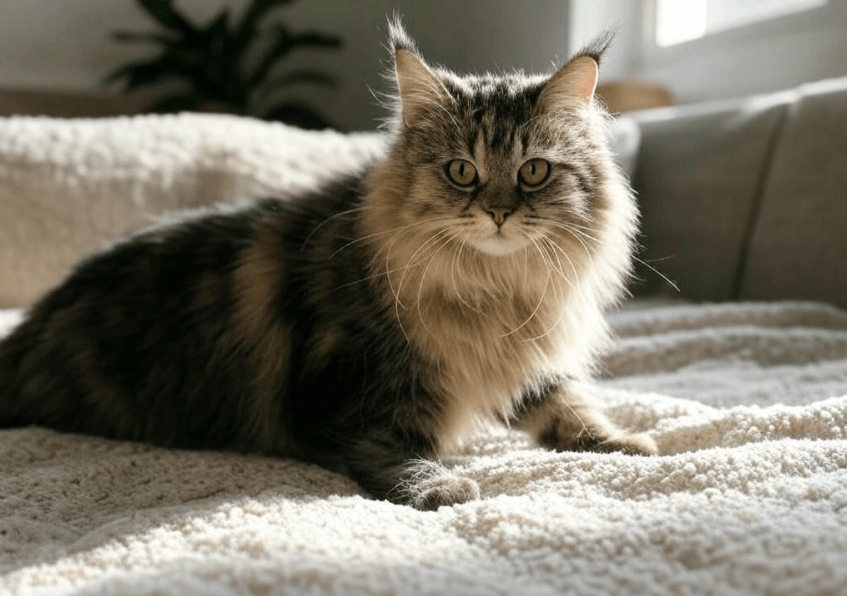
If your Maine Coon hates the litter box, you’re not alone. This common issue can be frustrating for both you and your feline friend. Maine Coons, known for their large size, playful personalities, and luxurious coats, are generally fastidious about their hygiene. So, when a Maine Coon avoids or refuses to use the litter box, it’s a sign something is amiss. This article dives deep into the reasons behind litter box aversion in Maine Coons and provides actionable troubleshooting tips to resolve the problem.
Understanding Why Maine Coons Hate the Litter Box
Maine Coons are unique in their behaviors and preferences, and their dislike for the litter box can stem from various factors. Identifying the root cause is the first step to addressing the issue. Below are the primary reasons your Maine Coon might be avoiding the litter box, along with practical solutions.
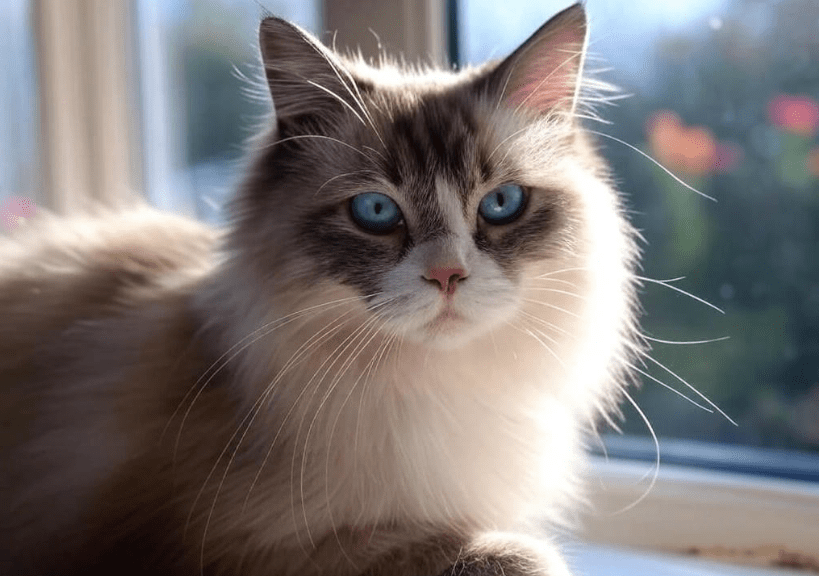
1. The Litter Box is Too Small
Maine Coons are one of the largest domesticated cat breeds, often weighing between 10-25 pounds and measuring up to 40 inches in length. A standard-sized litter box may feel cramped, making it uncomfortable for your Maine Coon to use.
Solution:
Choose a larger litter box. Opt for a box that is at least 1.5 times the length of your cat, allowing them to turn around comfortably. Extra-large or jumbo litter boxes are ideal.
Consider open vs. covered boxes. Some Maine Coons prefer open boxes for better ventilation and visibility, while others like the privacy of a covered box. Experiment to see what your cat prefers.
Place the box in a spacious area. Ensure the litter box isn’t squeezed into a tight corner, as this can deter usage.
2. The Litter Type is Unappealing
The texture, scent, or dustiness of the litter can significantly impact your Maine Coon’s willingness to use the box. Maine Coons often have sensitive paws, and certain litters may feel uncomfortable or irritating.
Solution:
Switch to a different litter type. Clumping clay litter is popular, but some Maine Coons prefer natural options like pine, corn, or walnut-based litters. Avoid heavily scented litters, as the strong smell can be off-putting.
Test litter gradually. When changing litter, mix the new type with the old one over a week to ease the transition.
Monitor for allergies. Dusty litters can cause respiratory issues or skin irritation, so opt for low-dust or hypoallergenic options.
3. Cleanliness Issues
Maine Coons are meticulous about cleanliness. A dirty litter box is one of the most common reasons they avoid it. If the box isn’t scooped daily or cleaned thoroughly, your cat may seek alternative places to relieve themselves.
Solution:
Scoop daily. Remove waste at least once a day, preferably twice for fastidious Maine Coons.
Deep clean regularly. Empty the box, scrub it with mild soap and water, and replace the litter every 1-2 weeks.
Use multiple boxes. The general rule is one litter box per cat plus one extra. For a single Maine Coon, two boxes in different locations can encourage consistent use.
4. Stress or Environmental Changes
Maine Coons are sensitive to changes in their environment. Stressors like moving to a new home, introducing a new pet, or even rearranging furniture can cause litter box avoidance.
Solution:
Maintain a stable environment. Keep the litter box in a quiet, low-traffic area where your Maine Coon feels safe.
Provide enrichment. Maine Coons are intelligent and active, so ensure they have toys, scratching posts, and climbing structures to reduce stress.
Use calming aids. Pheromone diffusers like Feliway or calming collars can help soothe an anxious cat.
5. Medical Issues
Health problems are a significant cause of litter box aversion in Maine Coons. Conditions like urinary tract infections (UTIs), bladder stones, or arthritis can make using the litter box painful or difficult.
Solution:
Consult a veterinarian. If your Maine Coon suddenly stops using the litter box, schedule a vet visit to rule out medical issues. Common symptoms include straining, frequent urination, or blood in the urine.
Address mobility issues. For older Maine Coons, arthritis may make it hard to climb into high-sided boxes. Choose a low-entry litter box for easier access.
Monitor diet and hydration. A high-quality diet and access to fresh water can prevent urinary issues. Wet food is particularly beneficial for Maine Coons prone to urinary tract problems.
6. Location and Accessibility Problems
The placement of the litter box plays a critical role in whether your Maine Coon will use it. If the box is in a noisy, busy, or hard-to-reach area, your cat may avoid it.
Solution:
Relocate the box. Place it in a quiet, private area away from loud appliances like washing machines or high-traffic zones.
Ensure easy access. For multi-level homes, place a litter box on each floor to prevent your Maine Coon from having to travel far.
Avoid sudden changes. If you need to move the litter box, do so gradually by shifting it a few feet each day to avoid confusing your cat.
7. Behavioral or Territorial Issues
Maine Coons are known for their dog-like personalities and strong territorial instincts. In multi-cat households, competition or bullying can lead to litter box avoidance. Additionally, past negative experiences (e.g., being startled while using the box) can create lasting aversions.
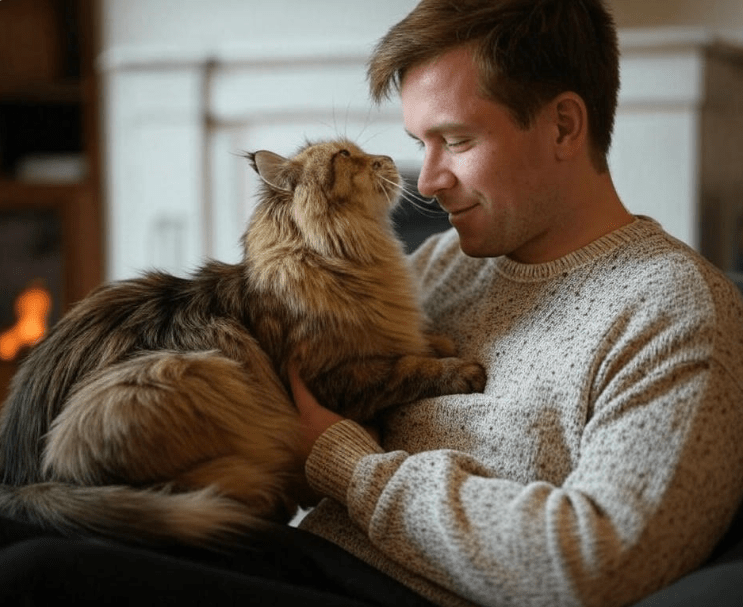
Solution:
Provide separate resources. In multi-cat homes, ensure each cat has their own litter box to prevent territorial disputes.
Rebuild positive associations. Place treats or toys near the litter box to create positive experiences. Avoid punishing your cat for accidents, as this can worsen the problem.
Work with a behaviorist. If behavioral issues persist, consult a feline behaviorist for tailored strategies.
Additional Tips for Maine Coon Litter Box Success
Beyond addressing the root cause, these general tips can help ensure your Maine Coon loves their litter box:
Experiment with litter depth. Maine Coons often prefer 2-3 inches of litter, allowing them to dig comfortably without feeling unstable.
Use litter box liners sparingly. Some Maine Coons dislike the feel of liners, which can slip or tear during digging.
Monitor for preferences. Maine Coons are individuals with unique preferences. Observe your cat’s behavior to tailor the litter box setup to their liking.
Keep it odor-free. Baking soda or litter deodorizers can help, but use them sparingly to avoid overwhelming your cat’s sensitive nose.
Common Mistakes to Avoid
When troubleshooting litter box issues, steer clear of these pitfalls:
Punishing your cat. Scolding or punishing your Maine Coon for accidents can increase stress and worsen the problem.
Ignoring medical issues. Always rule out health problems before assuming the issue is behavioral.
Making sudden changes. Abruptly changing litter types, box locations, or cleaning routines can confuse or stress your cat.
Using strong cleaning products. Harsh chemicals can leave lingering smells that deter your Maine Coon from using the box. Stick to mild, unscented soaps.
When to Seek Professional Help
If you’ve tried the above solutions and your Maine Coon still hates the litter box, it’s time to seek professional assistance. A veterinarian can perform diagnostic tests to identify underlying medical conditions, while a feline behaviorist can address complex behavioral issues. Early intervention is key to preventing chronic litter box aversion.
Creating a Maine Coon-Friendly Litter Box Setup
To summarize, a Maine Coon-friendly litter box setup should include:
1.A large, spacious box (open or covered, based on preference).
2.Low-dust, unscented litter that suits your cat’s texture preferences.
3.A clean, odor-free environment with daily scooping and regular deep cleaning.
4.A quiet, accessible location with minimal disruptions.
5.Multiple boxes in multi-cat households or multi-level homes.
By tailoring the litter box experience to your Maine Coon’s needs, you can encourage consistent use and maintain a happy, healthy home.
Conclusion
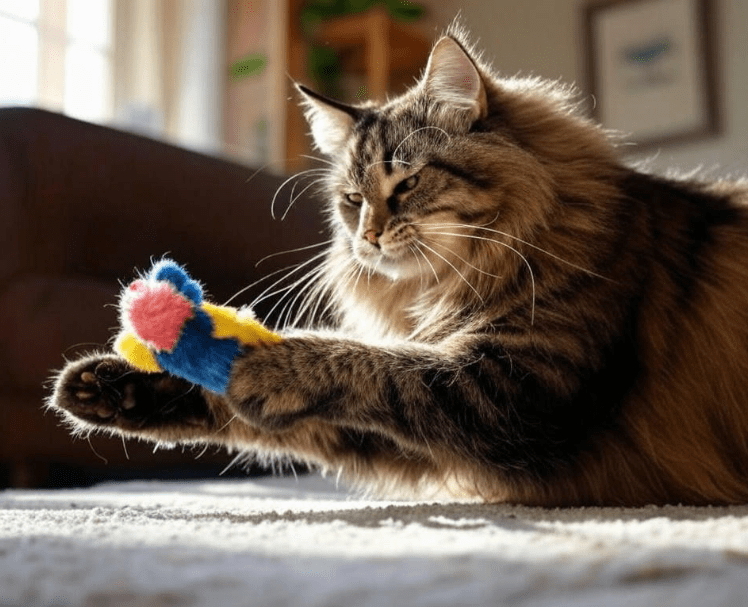
When your Maine Coon hates the litter box, it’s a signal to investigate and address their needs. By considering factors like box size, litter type, cleanliness, stress, medical issues, and location, you can pinpoint the cause and implement effective solutions. With patience and persistence, you can create a litter box setup that your Maine Coon loves, ensuring a harmonious and stress-free environment for both of you. Use the troubleshooting tips in this guide to make litter box time a breeze for your majestic Maine Coon.

